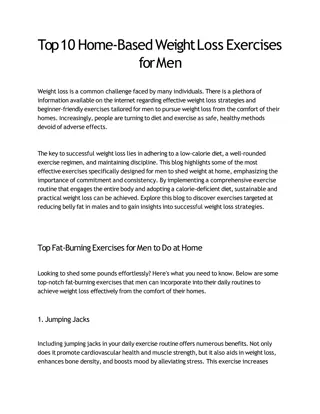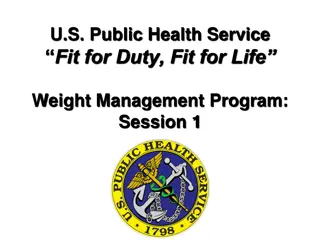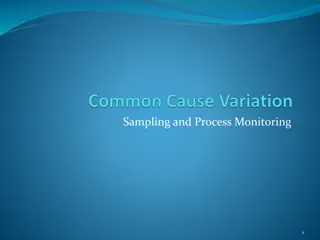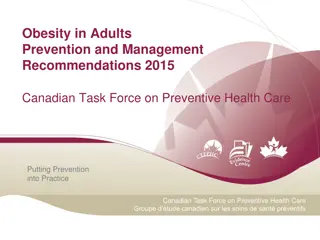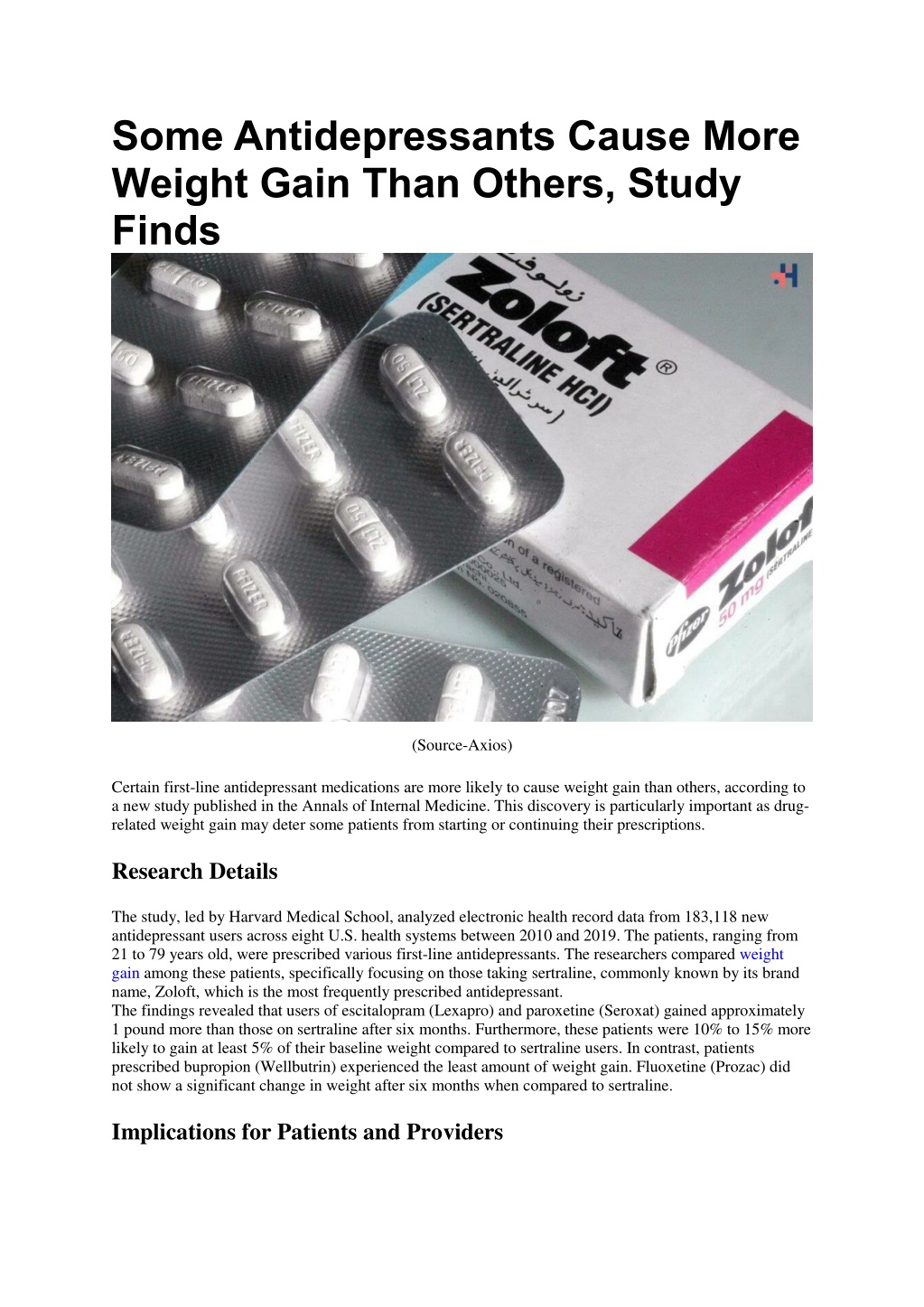
Some Antidepressants Cause More Weight Gain Than Others | healthcare
Certain first-line antidepressant medications are more likely to cause weight gain than others, according to a new study published in the Annals of Internal Medicine
Uploaded on | 0 Views
Download Presentation

Please find below an Image/Link to download the presentation.
The content on the website is provided AS IS for your information and personal use only. It may not be sold, licensed, or shared on other websites without obtaining consent from the author. Download presentation by click this link. If you encounter any issues during the download, it is possible that the publisher has removed the file from their server.
E N D
Presentation Transcript
Some Antidepressants Cause More Weight Gain Than Others, Study Finds (Source-Axios) Certain first-line antidepressant medications are more likely to cause weight gain than others, according to a new study published in the Annals of Internal Medicine. This discovery is particularly important as drug- related weight gain may deter some patients from starting or continuing their prescriptions. Research Details The study, led by Harvard Medical School, analyzed electronic health record data from 183,118 new antidepressant users across eight U.S. health systems between 2010 and 2019. The patients, ranging from 21 to 79 years old, were prescribed various first-line antidepressants. The researchers compared weight gain among these patients, specifically focusing on those taking sertraline, commonly known by its brand name, Zoloft, which is the most frequently prescribed antidepressant. The findings revealed that users of escitalopram (Lexapro) and paroxetine (Seroxat) gained approximately 1 pound more than those on sertraline after six months. Furthermore, these patients were 10% to 15% more likely to gain at least 5% of their baseline weight compared to sertraline users. In contrast, patients prescribed bupropion (Wellbutrin) experienced the least amount of weight gain. Fluoxetine (Prozac) did not show a significant change in weight after six months when compared to sertraline. Implications for Patients and Providers
Lead researcher Joshua Petimar highlighted the studys value in providing a more detailed understanding of the impact of different antidepressant medications on weight. One of the reasons we were motivated to do this study was that we could give both providers and patients more information that they can use to make the best decisions, Petimar told Axios. The study looks at averages, which means that while the overall effect may seem small, it can significantly impact some patients more than others. Weight gain is a common side effect of many medications, and for some patients, it can be a significant concern that affects their willingness to start or adhere to treatment. Understanding which medications are more likely to cause weight gain can help patients and healthcare providers make more informed choices about treatment options. This can lead to better adherence to prescribed medications and ultimately better outcomes for patients. Future Research about Weight Gain This study is just the beginning of a series of examinations by Petimar s team on how various medications affect patients weight. Future research will include the impact of antidepressants on children and adolescents, as well as the effects of medications for other conditions such as psychosis, diabetes, hypertension, and seizures. These upcoming studies aim to provide even more comprehensive data to guide clinical decisions and improve patient care. The new findings on weight gain associated with different antidepressants underscore the importance of personalized medicine. By understanding the side effects of these medications, patients and providers can work together to choose the best treatment options. As research continues, it will provide even more detailed insights, helping to optimize medication choices and improve health outcomes for patients dealing with various conditions. Find practical solutions to common challenges through our insightful articles on Healthcare 360 Magazine

